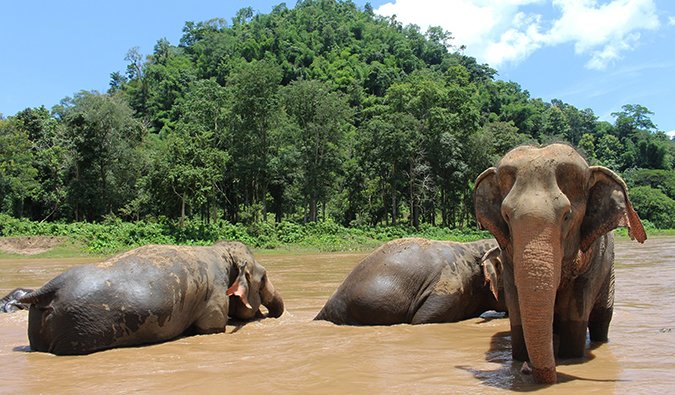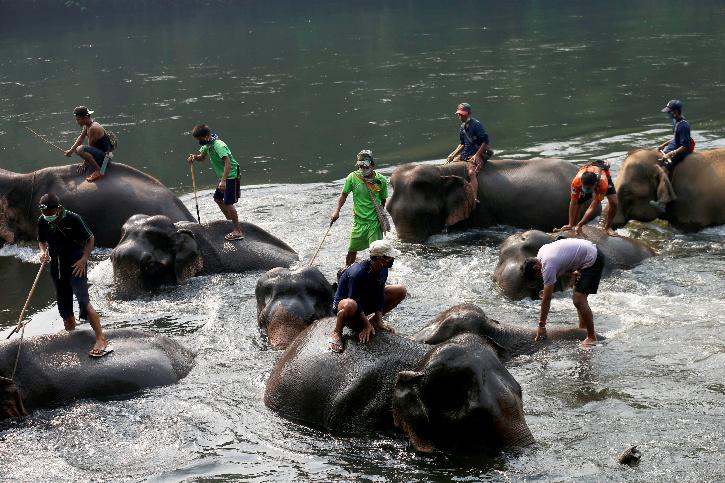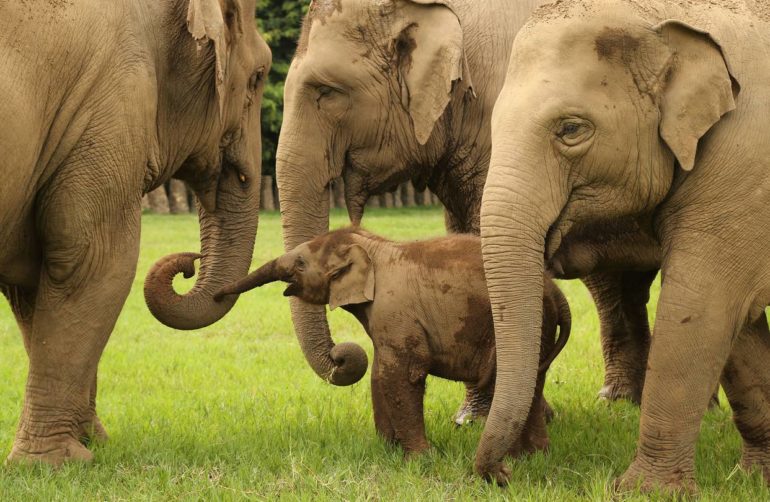The coronavirus pandemic has adversely affected the hospitality and tourism industries across the world. The world is brought to a standstill. With humans home quarantined, the animals at zoos, pet shops and streets across the world are suffering from hunger as there is no one to feed them. Thousands of captive elephants in Thailand might face starvation as there is a significant drop in tourism income. The coronavirus pandemic in the country led to the government declaring a state of emergency from the month of March. Thailand currently has 2907 coronavirus cases with 2547 recoveries and 51 deaths. Amid this lockdown, the country’s captive elephants might be the ones to lose the most.

What’s In It?
Thailand has around 4000 captive elephants. They are mainly used as safari animals for tourists. The lack of tourist income and total uncertainty when tourism might resume due to the deadly virus, has made elephants the biggest casualties of the lockdown. The caretakers are finding it very difficult to feed the majestic creatures who need 200-300 kg of food per day. The World Animal Protection( WAP) stated that over 2000 captive elephants need help urgently. Lek Chailert, the Founder of Save The Elephant Foundation mentioned: “If there is no support forthcoming to keep them safe, these elephants — some of whom are pregnant — will either starve to death or maybe put on to the streets to beg.”

Kerri McCrea, who manages the affairs of Thailand’s Kindred Spirit Elephant Sanctuary in Mae Chaem informed BBC that the villagers who reside near her had brought around 70 elephants back to her areas, as they weren’t receiving any tourism income. McCrea stated that feeding elephants is a priority but the issue is that there’s not enough food left to feed them. She revealed that the most unfortunate issue will arise, where the owners would have to choose between feeding themselves and their elephants. Chatchote Thitaram of the Center of Elephant and Wildlife Research at Chiang Mai University said that they would have to feed the elephants the same way as they used to do before. This is because they can’t find their own food.
What’s More?
A 29-year-old mahout, Somkit Methachotikul who gets a monthly salary of $228(₹17,346) informed AFP that he was concerned about the well being of his elephants and his family. Somkit stated “Elephants are like our family members. If they are eating well, sleeping well, that makes me happy”. Thailand one widely used elephants in their logging industry. But this practice faced a ban in the 1990s. Did you know Large Number Of Rare Leatherback Sea Turtle Nests Have Been Spotted At Thailand’s Deserted Beaches?

They were then used as a tourist attraction. But animals rights groups argue that they are not suited for the tourist industry. The majestic creatures are often chained, cruelly trained, and receive harsh punishment so they can entertain tourists who come to see them. WAP informed that elephants are also at risk of contracting illnesses like tuberculosis from humans, and they have the ability to spread the disease to uninfected people due to close contact. Right now, elephants and other animals need as much help as humans during this pandemic. So do contribute to causes, feed animals and do your bit to help the fauna around you.
To donate click here
First Published: April 27, 2020 11:42 AM




